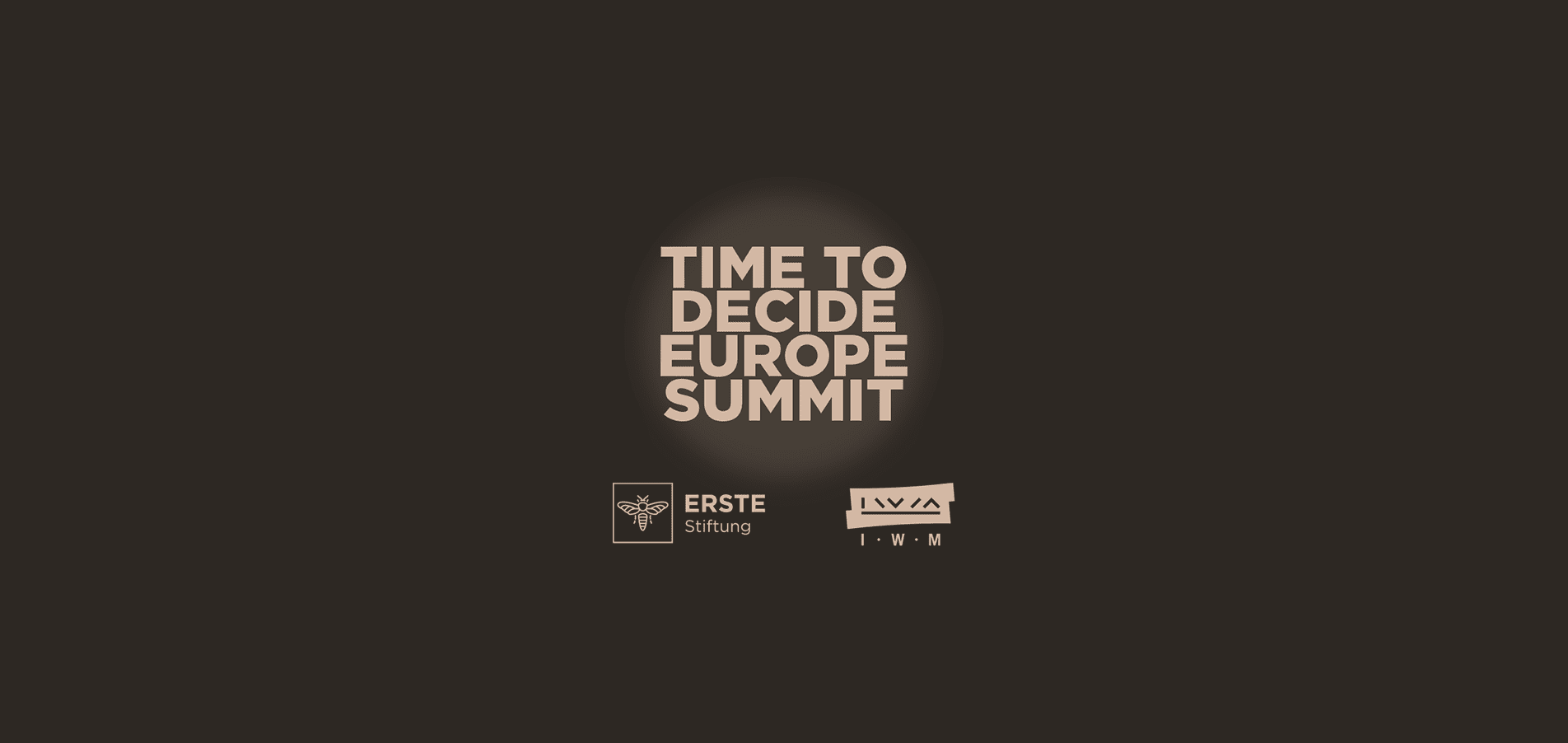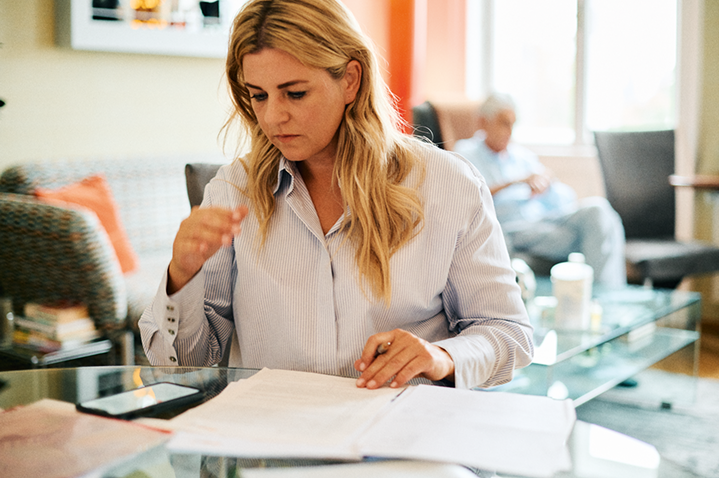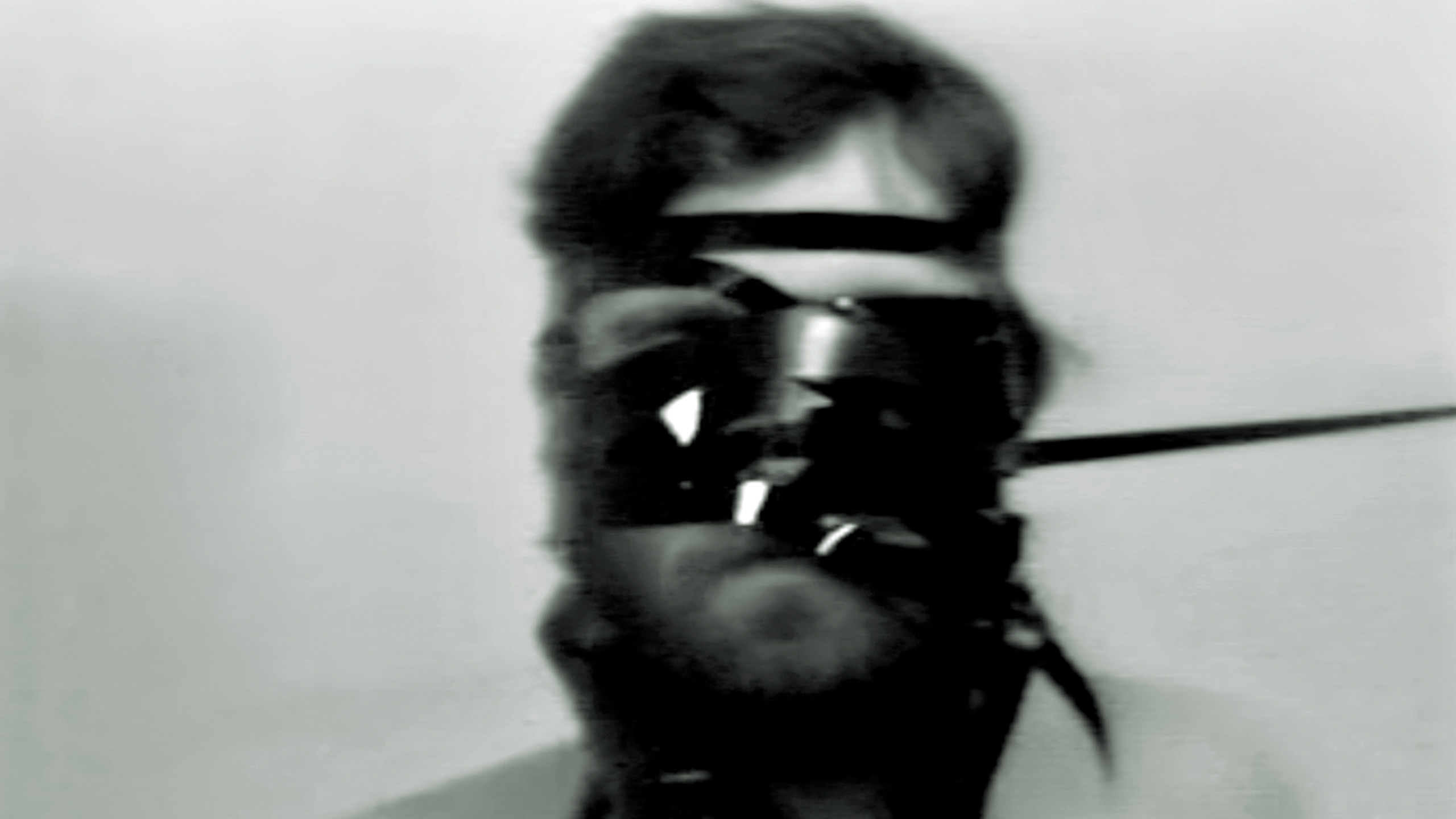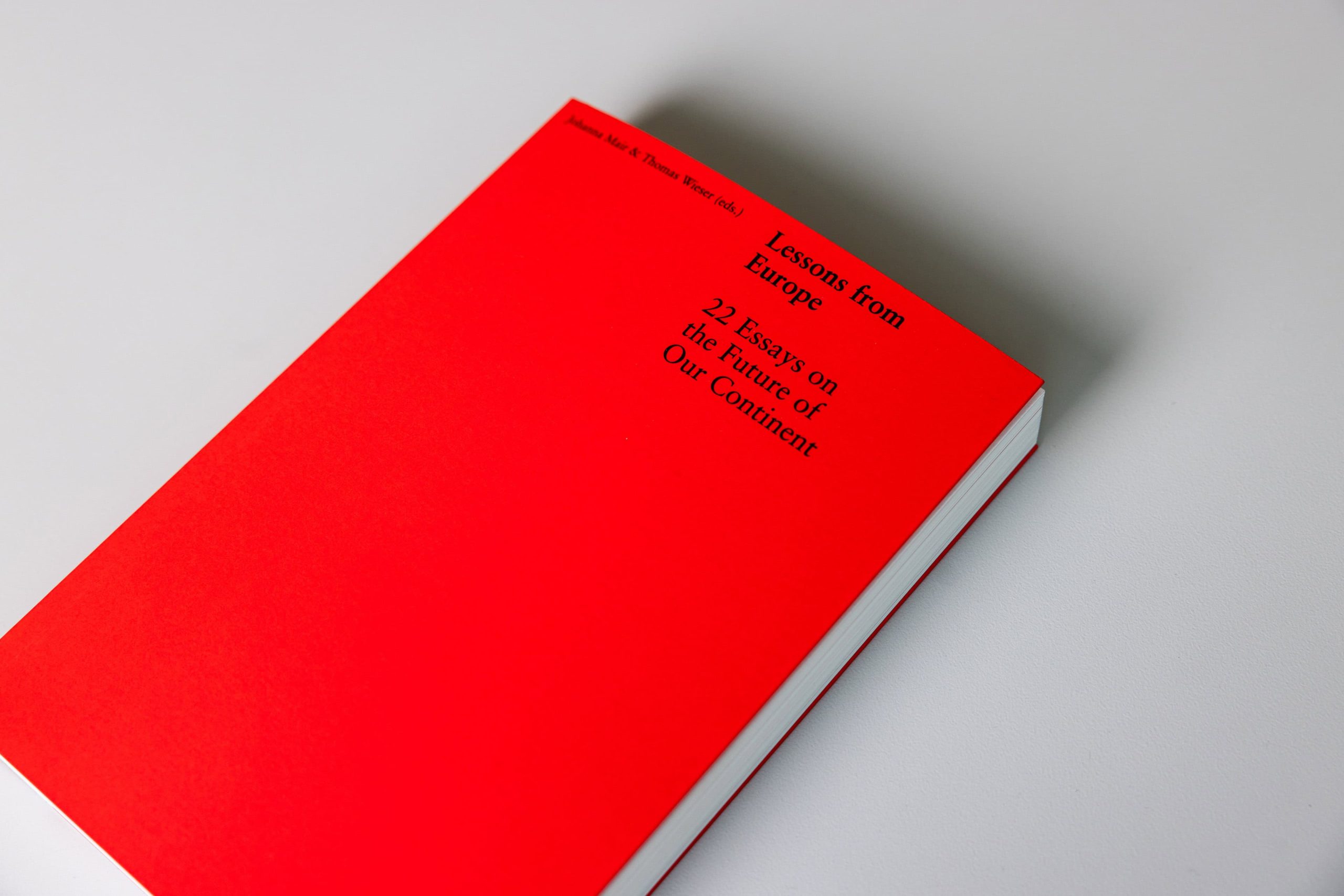Event
May 20, 2022 – May 20, 2022
Reading Time: 6'

Time To Decide
May 20, 2022 – May 20, 2022, 09:15 – 20:00
Live Stream
#TimeToDecide22
In the early hours of 24 February 2022, Europe woke up to a grave new world. Something considered unthinkable after WWII had happened, and the European security order was blown up. Russia’s military aggression against Ukraine put an end to the »end of history» era, which had begun in 1989.
This attack has triggered events in Europe that had been previously unimaginable. We want to look ahead and think about the consequences of these dramatic events for Ukraine, for Europe and the EU, and for Russia.
ERSTE Foundation and the Institute for Human Sciences (IWM) have invited some of the brightest minds to start a debate on the difficult questions that Europe is facing today and the answers that will determine the future. A group of renowned experts, intellectuals and thinkers will discuss five key questions for Europe today in a unique setting:
- How should Ukraine be rebuilt after the war?
- What lessons can we draw from the Balkans?
- Is it Central Europe’s moment in Europe right now?
- How will the European Union be transformed?
- What will the future be for Russia?
Programme
Friday, 20 May 2022
Time to Decide Europe Summit, is a one-day conference co-organised by ERSTE Foundation and the Institute for Human Sciences (IWM) that will address the dilemmas posed by the war in Europe.
Welcome & opening
9 – 10 am
Introduction by summit hosts
Boris Marte, CEO of ERSTE Foundation
Ivan Vejvoda, Permanent Fellow at the Institute for Human Sciences (IWM) in Vienna
Opening speech
Alexander Van der Bellen, Federal President of the Republic of Austria (video message)
Opening address
Dmytro Kuleba, Minister of Foreign Affairs of Ukraine (live stream)
Introducing the speakers & participants on stage
Morning session: A tale of two wars
10 – 11.30 am
How should Ukraine be rebuilt after the war?
Serhii Plokhy, Mykhailo S. Hrushevsky Professor of Ukrainian History, Harvard University
Nathalie Tocci, Director of the Istituto Affari Internazionali in Rome
Moderator: Olga Tokariuk, Non-Resident Fellow at the Center for European Policy Analysis (CEPA), independent journalist and researcher in Kyiv
What are the historical and intellectual roots of Ukraine’s »European choice»? How does the war redefine Ukraine’s relations with Europe? How should Ukraine be rebuilt after the war? Should it be offered EU membership, or should another formula of cooperation with the EU be found? What should Ukraine’s security architecture look like? What will happen to the millions of refugees? How would a potential membership of Ukraine in the European Union change the EU?
12 – 1.30 pm
What lessons can we draw from the Balkans?
Nikola Dimitrov, Non-Resident Fellow at the Institute for Human Sciences (IWM) in Vienna, Former Deputy Prime and Foreign Minister of North Macedonia
Misha Glenny, Rector of the Institute for Human Sciences (IWM) in Vienna
Moderator: Ivana Dragičević, Editor-at-Large at N1 Television
Should the EU’s strategy regarding the Western Balkans change in view of the war in Ukraine? How would the prospect of Ukraine’s EU membership affect the Western Balkan accession process? What lessons for Ukraine can be drawn from the Balkan wars? And from the Western Balkans’ path to the EU? What kind of cooperation with Europe would support the democratic development of the Western Balkans and Ukraine’s reconstruction? What are the pitfalls to watch out for?
Afternoon session: Europe on the brink
2.30 – 4pm
Introduction
Andreas Treichl, Chairman of the Supervisory Board of ERSTE Foundation
Is it Central Europe’s moment in Europe right now?
Gerald Knaus, Chairman of the European Stability Initiative (ESI) in Berlin
Karolina Wigura, Sociologist, Robert Bosch Academy Fellow Berlin, Member of the Board at Kultura Liberalna Foundation in Warsaw
Moderator: Márta Pardavi, Co-Chair of the Hungarian Helsinki Committee in Budapest
Is Central Europe the big winner or the big loser of the Ukrainian crisis? How will the region be transformed – socially, economically, and politically? What will be the impact of the refugee influx from Ukraine? Is the massive solidarity going to last even if the war goes on for much longer? Should we expect a populist response? Is Central Europe’s voice within the EU going to be strengthened or weakened as a result of Russia’s war in Ukraine?
4.30 – 6 pm
How will the European Union be transformed?
Franziska Brantner, Parliamentary State Secretary at the German Federal Ministry for Economic Affairs and Climate Action (live stream)
Ivan Krastev, Permanent Fellow at the Institute for Human Sciences (IWM) in Vienna
Moderator: Misha Glenny, Rector of the Institute for Human Sciences (IWM) in Vienna
Is the war in Ukraine an opportunity for Europe to solve its most pressing problems: its dependency on Russia for energy, the green energy transition, its security and sovereignty? Or does it pose the risk of destroying the EU? What are the challenges for Europe posed by the war – economically, politically, in security terms, and regarding societies?
Evening session
6.30 – 8 pm
What will the future be for Russia?
Stephen Holmes, Visiting Fellow at the Institute for Human Sciences (IWM) in Vienna, Walter E. Meyer Professor of Law at New York University
Maxim Trudolyubov, Editor-at-Large of Meduza
Moderator: Marina Davydova, Theatre critic, director, historian and producer
How has Russia been changed by Putin’s war with Ukraine? What are the short-term and long-term consequences of the invasion for Russia? Is a different kind of Russia possible? What conditions must be met for a democratic Russia to emerge? What will it look like? Who will be shaping post-Putin Russia? Should Europe support an infrastructure of pro-democratic Russian leaders in exile in the current crisis?
Confirmed speakers & participants on stage:
DIMITAR BECHEV · FRANZISKA BRANTNER · MARINA DAVYDOVA · NIKOLA DIMITROV · IVANA DRAGIČEVIĆ · FLORENCE GAUB · MISHA GLENNY · HEATHER GRABBE · STEPHEN HOLMES · ANNA JERMOLAEWA · GERALD KNAUS · IVAN KRASTEV · OLIVIA LAZARD · STEFAN LEHNE · MÁRTA PARDAVI · SERHII PLOKHY · MARIIA ROHOVETS · SUSANNE SCHOLL · SŁAWOMIR SIERAKOWSKI · ZSUZSANNA SZELÉNYI · NATHALIE TOCCI · OLGA TOKARIUK · MAXIM TRUDOLYUBOV · IVAN VEJVODA · KAROLINA WIGURA · ŽELIMIR ŽILNIK
#TimeToDecide22




